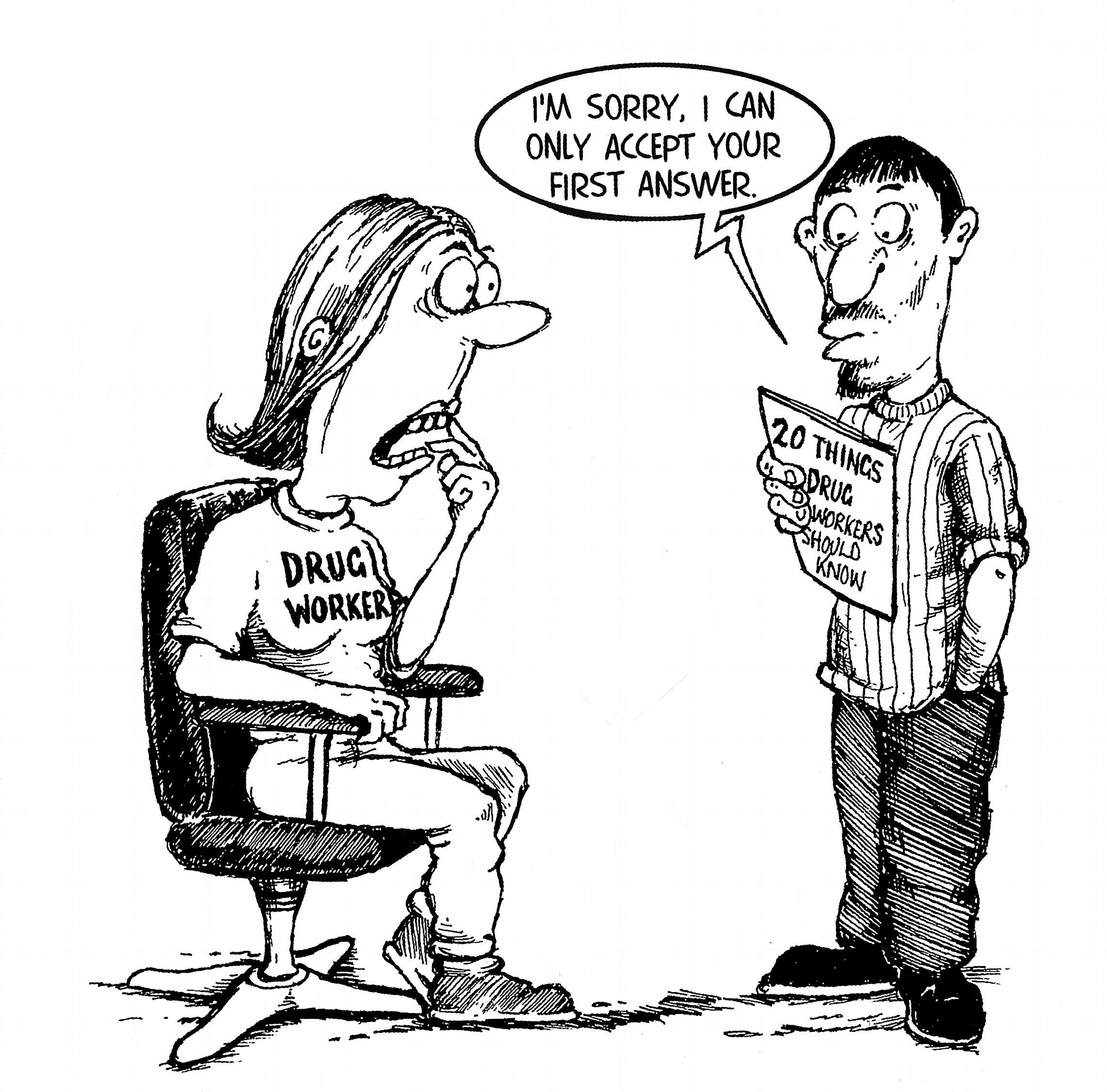Although you might be detoxified when you come out of the anaesthetic, you may still experience much of the discomfort and sleep disturbances associated with withdrawal – often for up to a month of more afterwards. My own personal view is that UROD is just too dangerous. The risks far outweigh the benefits. However, other people who have been through the procedure disagree. If you are contemplating UROD, then try and seek out as much information as possible about the procedure, try and pick a responsible clinic that uses a hospital with full emergency back-up services. (One practitioner in the USA does this procedure in an office suite in an afternoon, after which you’re discharged to the care of a relative in a motel room. Some of this man’s patients have died while undergoing or shortly after the procedure, and he’s currently facing court proceedings.)
Out-patient Detox Because of the costs and the long waiting lists associated with in-patient detox, many drug treatment agencies are making increasing use of outpatient detoxification programmes. These programmes tend to follow the same sort of dosing regimes — either methadone, or more rarely, dihydrocodeine (DF118’s), or some form of symptomatic relief like lofrexidine or clondine, possibly with other drugs as adjuncts -- as an inpatient detoxification, only instead of doing it in a hospital bed, you do it at home. Like drugs services, the quality of an out-patient detox can vary widely. Some will consist of nothing more than a prescription from your GP. Others might be administered by your local Drug Dependency Unit or Community Drug Team, and might offer things like daily visits from a
Community Psychiatric Nurse to bring your meds and check how you are. Others might just offer telephone support. There are both advantages and disadvantages to this type of detoxification programme. The main advantage is that you are at home, with the people that you care about and all the comforts of your home around you. This is also the main disadvantage to such a programme. For people who might not have ideal housing conditions, might have children to take care of, or who might not be able to stand up to the various temptations posed by remaining in the same circumstances and same community that they’ve always used drugs in, it might actually not be such a good idea. For people who haven’t been using drugs for a long period though (ie, those who have only been dependent for a year or two), it’s probably the obvious thing to try first. The service will probably provide you with some form of support, such as regular home visits from a doctor or nurse to check on how you’re doing, and you don’t have to suffer from hospital food, or dorks who spend all their time repeatedly talking about their best drug ever. Once again, you should discuss this with the workers or the doctor at the service concerned. They are very fond of client-service contracts – have them discuss their obligations to you. How much support will they provide? What will happen if you find the whole thing too difficult? Do they have any aftercare services? Drugs agencies are always claiming that their job is to ‘empower the user’, so the first place you need to start exercising that new-found power is in ensuring you get a high quality service from your treatment provider. Lets start as we mean to go on…





